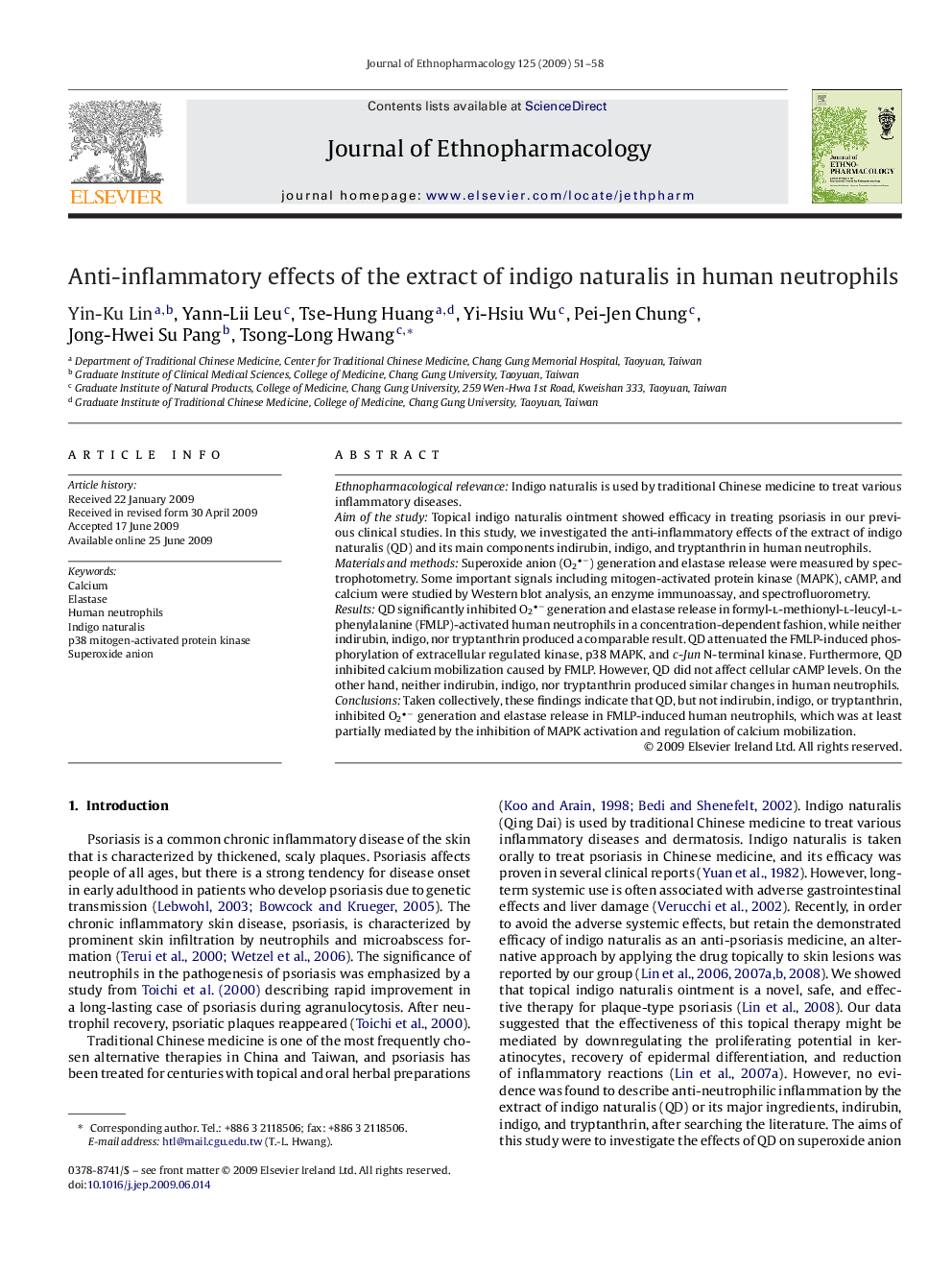| Article ID | Journal | Published Year | Pages | File Type |
|---|---|---|---|---|
| 2546975 | Journal of Ethnopharmacology | 2009 | 8 Pages |
Ethnopharmacological relevanceIndigo naturalis is used by traditional Chinese medicine to treat various inflammatory diseases.Aim of the studyTopical indigo naturalis ointment showed efficacy in treating psoriasis in our previous clinical studies. In this study, we investigated the anti-inflammatory effects of the extract of indigo naturalis (QD) and its main components indirubin, indigo, and tryptanthrin in human neutrophils.Materials and methodsSuperoxide anion (O2−) generation and elastase release were measured by spectrophotometry. Some important signals including mitogen-activated protein kinase (MAPK), cAMP, and calcium were studied by Western blot analysis, an enzyme immunoassay, and spectrofluorometry.ResultsQD significantly inhibited O2− generation and elastase release in formyl-l-methionyl-l-leucyl-l-phenylalanine (FMLP)-activated human neutrophils in a concentration-dependent fashion, while neither indirubin, indigo, nor tryptanthrin produced a comparable result. QD attenuated the FMLP-induced phosphorylation of extracellular regulated kinase, p38 MAPK, and c-Jun N-terminal kinase. Furthermore, QD inhibited calcium mobilization caused by FMLP. However, QD did not affect cellular cAMP levels. On the other hand, neither indirubin, indigo, nor tryptanthrin produced similar changes in human neutrophils.ConclusionsTaken collectively, these findings indicate that QD, but not indirubin, indigo, or tryptanthrin, inhibited O2− generation and elastase release in FMLP-induced human neutrophils, which was at least partially mediated by the inhibition of MAPK activation and regulation of calcium mobilization.
